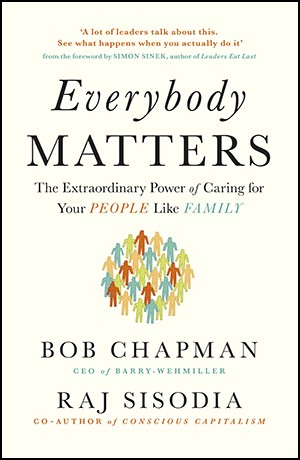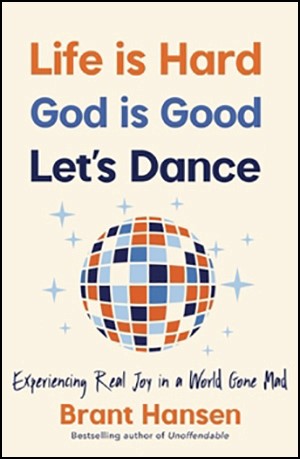Self-Help

Self-Help
I have a friend named Perry who I’ve come to know through networking and peer-collaboration groups. To say that Perry and I hold divergent world views would be a serious understatement. In fact, you could probably count the times we’ve totally agreed on any subject using the digits on one hand (minus your thumb…and one of your nose-picking fingers).
You might ask how such a relationship could be called a friendship but what I haven’t revealed yet is that I value Perry’s contrarian opinions above those of most of the other people I know. If I were a Chinese philosopher, I’d say he is the Yin that balances my Yang (don’t go there). If you know me, you know I tend to be manic when I discover something new. If it’s worth doing, it’s worth going all in. Perry tends to provide the counterbalance to that exuberance.
Cynics vs Skeptics
Perry is no cynic. Cynics are people who have seen the glass as half-empty for so long they’ve embraced their own inner negativity. My friend is a skeptic; he’s not as much concerned with whether the glass is half empty or half full as whether the contents of the glass is the Kool-Ade of conformity, the alcohol of escapism, or the coffee of bright-eyed analysis. He is cautious.
As a top executive with a major fast-food conglomerate, he saw a LOT of decisions being made and he grew suspicious of the motives behind those decisions. It shouldn’t surprise you that Perry escaped that environment, and today, he runs his own financial planning company.
When you stop to think about it, who could possibly be a better financial advisor than a skeptic. If you’re going to trust someone with your investments, they darn-well need to be an asker of hard questions. In fact, if your financial planner is one of those hyper-positive, “We’re gonna kill it” types, you better investigate whether he/she got their credentials from the Madoff school of finance.
Business and the Art of Self-Help
I read a lot of books (actually, I listen to them on Audible) and at least half of those books are business leadership books. In one of our discussion groups, Perry the skeptic suggested that those books all follow the same formula of providing five (always five) principles for managing relationships — singularly for the purpose of getting more out of other people, whether they be employees or friends.
Needless to say, the pro-self-help me thought Perry was off his rocker — that is until I started mentally reviewing all the books I’d gone through over the previous year. As much as it pains me to admit, my friend was nearly one hundred percent correct. Ninety-eight percent of those books that preached being good to others — and especially those that delved into personality types — all came down to psychological manipulation in order to assure a more profitable outcome. That even applied to many of the books that used palatable terminology like “Servant Leadership”.
It’s a People Issue
In the final analysis, I have to admit that there is something broken deep inside every one of us. We are all, at our core, committed to “self-help”, even at the expense of others. That point was driven home to me recently when I attended a meeting of volunteers for a local non-profit. Our job as volunteers is to help integrate newcomers into large group meetings and introduce them to other attendees.
When the question of improving our odds of success came up, the discussion turned immediately to volunteers needing fancier nametags to “make ourselves more visible”. The discussion got out of hand to the point that the leader finally asked in sarcasm, “Do y’all also want sashes with your names and titles on them?” Sadly, some people thought that would really be cool. In less than ninety seconds, we had moved from servant leadership to self-promotion.
So, what’s the answer? Anyone who owns a business is caught between the rock of necessary profits and the hard place of putting others’ needs first. Do we honestly even have the capability of understanding how deeply ingrained and perfectly camouflaged our “me-first” mentality is? And, if we even catch a fleeting glimpse of it, do we have the courage to confront that feral animal within?
Are we strong enough to become skeptics when it comes to our own motives without becoming cynics about everyone around us? I’ll ask my friend Perry the next time I see him.
 Want to connect face-to-face? Email me at guy@lawsoncomm.com. I’ll buy you coffee and we can talk about it. I’d be interested to hear your thoughts.
Want to connect face-to-face? Email me at guy@lawsoncomm.com. I’ll buy you coffee and we can talk about it. I’d be interested to hear your thoughts.
![]()
We should not view men with a cynical eye, seeing them only as meaningless products of chance, but, on the other hand, we should not go to the opposite extreme of seeing them romantically. To do either is to fail to understand who men really are — creatures made in the image of God but fallen.
― Francis Schaeffer

Did someone forward this newsletter to you after reading it themselves? Don’t settle for that!
CLICK HERE
to get a fresh, unused copy of this newsletter sent directly to you every Sunday morning. If you decide it stinks, you can always unsubscribe.
Everybody Matters
— Bob Chapman

Earlier, I admitted that 98% of the business books I’ve read boiled down to profits over people. This book is at the top of the other 2%. Chapman exemplifies the attitude of putting other people’s good above his own. His story is as compelling as it is unique and his principles apply equally to corporations and everyday individuals. Just writing this makes me want to read it again!
Life is Hard God is Good
Let’s Dance
— Brant Hansen

A title like that says two things: This is not another boring theology book, and it could only come from someone as whacky and fun to read as Brant Hansen. His stories are incredible and his heart for people is outstanding. He brings fresh, new meaning to life on this planet. If you can get it on Audible, do that because Hansen is as great a narrator as he is a writer.












